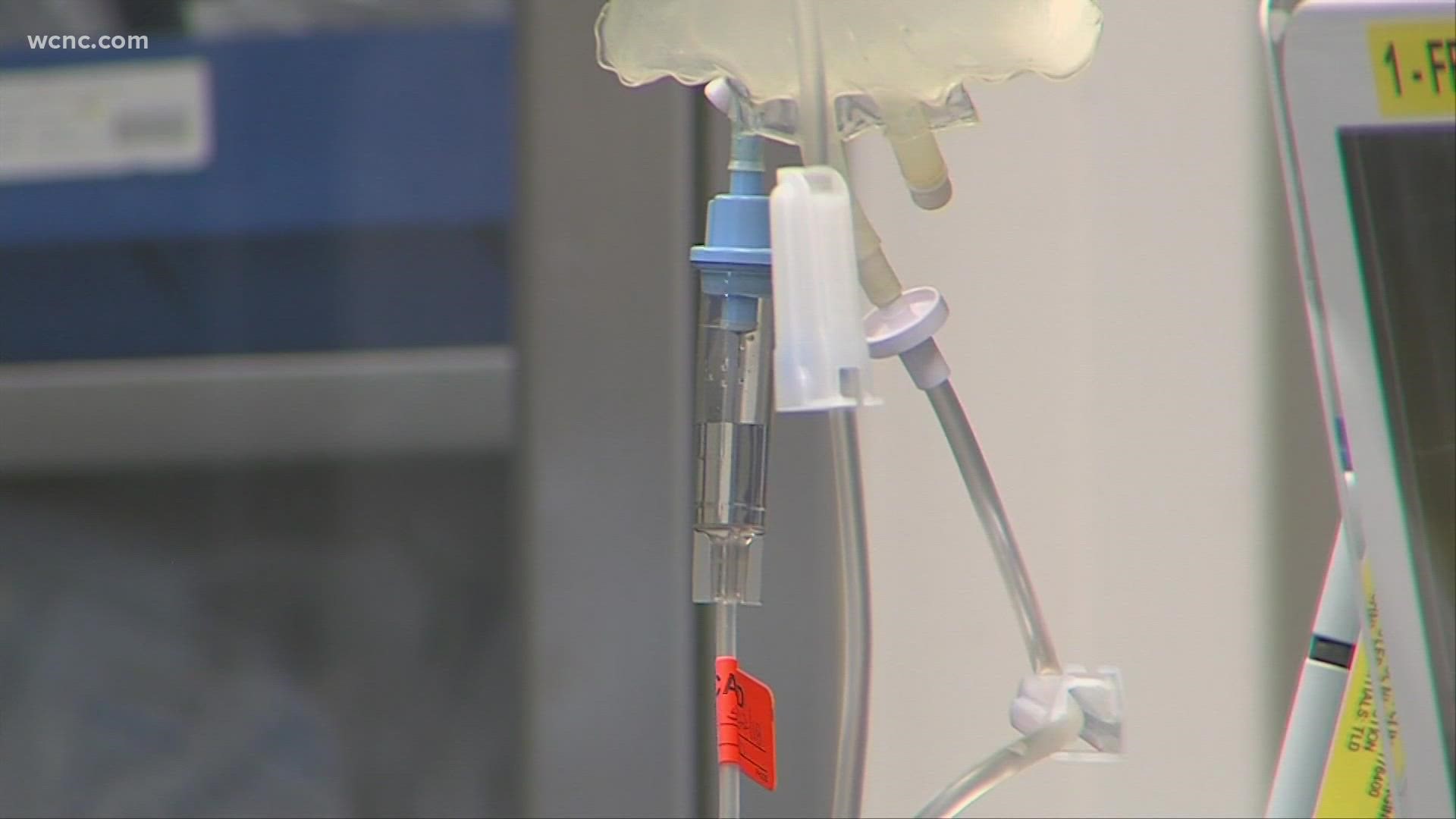CHARLOTTE, N.C. — Right now, more than 106,000 people nationwide are waiting for a lifesaving organ transplant. Like everything else in society, transplant programs were impacted by the pandemic.
In 2020, 39,000 organ transplants were performed despite the surgeries coming to a screeching halt that March, leaving many people waiting for a surgery they needed to live.
Now, healthcare workers have adapted and changed processes to be COVID-19 friendly and safe, many now feeling more confident about who can be a donor.
Transplant surgeries bounced back quickly and more were done in 2020 than in 2019.
After dying from COVID-19 complications, 20-year-old University of North Carolina Wilmington student Tyler Gilreath saved others because he was an organ donor. His heart, kidneys, liver and pancreas are all going to someone in desperate need of an organ transplant.
“If somebody dies of COVID, initially in the pandemic they were almost exclusively excluded from being organ donors," Dr. David Klassen, the Chief Medical Officer for the United Network for Organ Sharing or UNOS, said."That however has evolved."
Transplant teams have adapted and now Klassen said, under some circumstances, people who die from COVID-19 or have had it, can be lifesaving donors.
Since early in the pandemic, every single donor has been tested. That testing is more invasive if the transplant involves lungs.
“The system remains very safe," Klassen said. "People are often concerned about potentially acquiring COVID as a result of a transplant and that is a very, very rare event."
It has only been documented to spread COVID-19 in a lung transplant, but not with any other organs. Experts say that's made transplant centers more comfortable looking at patients with a history of COVID-19.
“If someone was, unfortunately, dying of COVID right now, you have to be much more cautious in the way you looked at those organs, really try to think about their viability, make sure there aren't other complications COVID could've triggered,” Dr. Cameron Wolfe, an infectious disease specialist with Duke Health, said.
Duke Health is one of five transplant centers in North Carolina.
Wolfe said COVID-19 is just another factor to seriously consider when determining if the benefits of the transplant outweigh the risks.
“Risk is also sometimes not doing the transplant," Wolfe said. "If I have someone in my hospital who’s in desperate need of a heart transplant and they don't make it through the week if they don't get one, sometimes taking calculated estimates of how you could get that person a transplant in fact really works out in their best interest."
Doctors say the COVID-19 vaccine is especially important for transplant recipients, ideally they should get the shots before their surgery.
Experts encourage people to get informed about being an organ donor, the process is simple.
Contact Chloe Leshner at cleshner@wcnc.com and follow her on Facebook, Twitter and Instagram.

